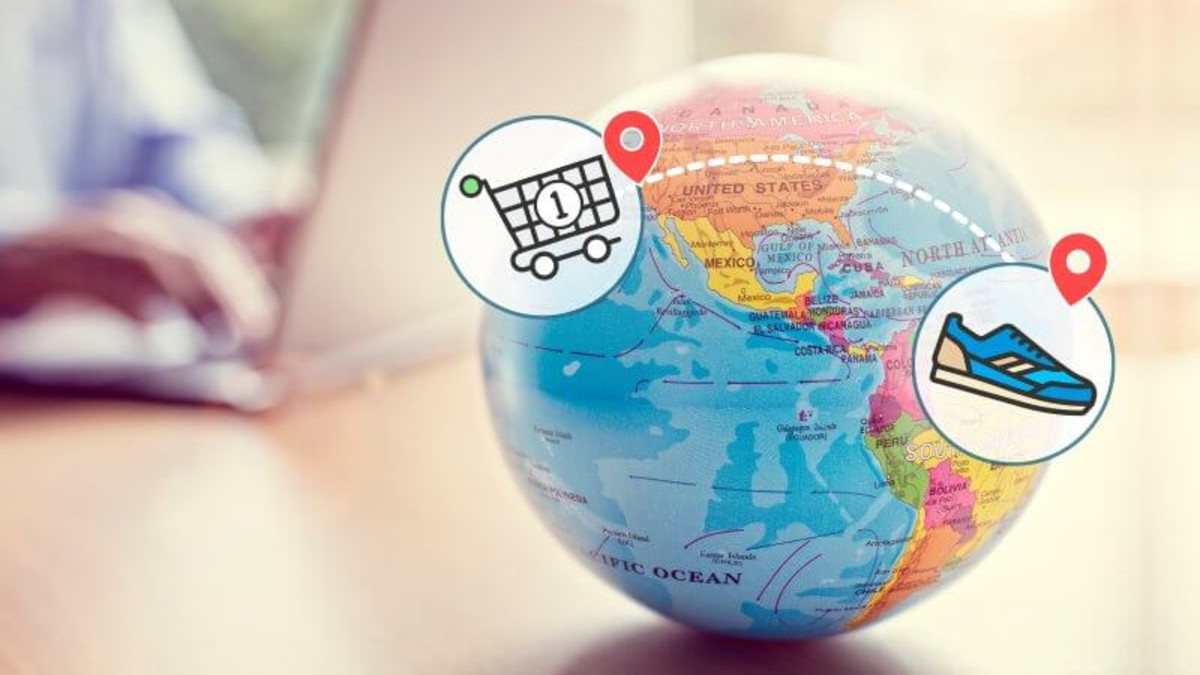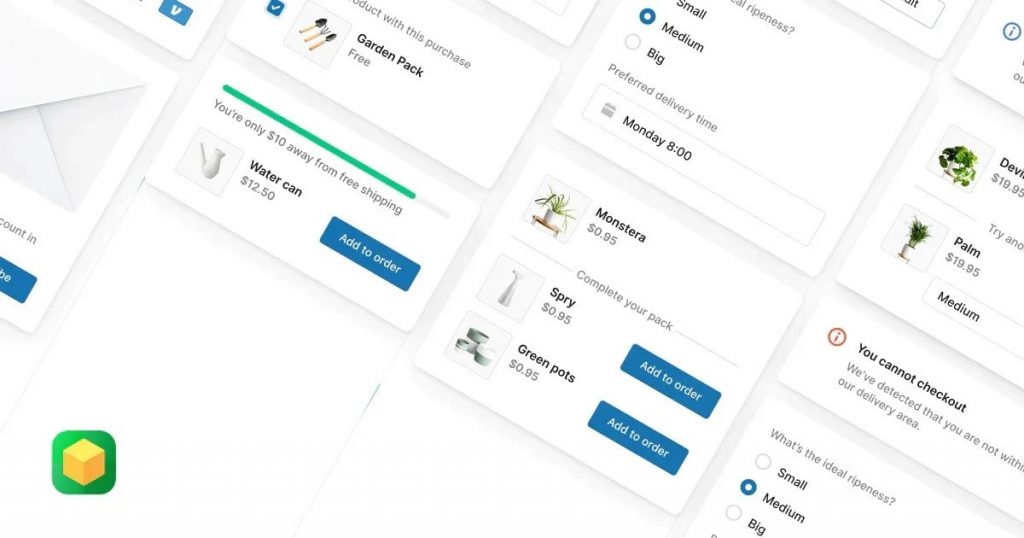Juphy’s Weekly E-Commerce News Express – 10-14 June 2024
Ceyda Duz
Welcome to this week’s e-commerce and AI news roundup: May’s strong retail sales underscore resilient consumer spending, contrasting with EMarketer’s challenge to perceptions of physical retail decline. UK shoppers drive cross-border purchases in fashion, navigating concerns over quality and returns. On the innovation front, Shopify advances checkout customization with Checkout Blocks, eBay introduces AI-powered photo enhancements, and Alibaba streamlines global sourcing with “Alibaba Guaranteed” tailored for U.S. SMEs.

Consumer Spending Resilience
Retail sales experienced robust growth in May, indicating that consumers have maintained their spending power despite various negative factors. According to the National Retail Federation’s Retail Monitor and data from CNBC, both online and total sales saw year-over-year and month-over-month increases in May, reversing the trends seen in April.
The NRF emphasized the strength of consumer spending and attributed it to solid economic growth. The Retail Monitor, which uses anonymized credit and debit card purchase data in their analysis, reported that total retail sales grew by 1.35% month-over-month and 3.03% year-over-year in May. Compared to April, this is a significant improvement.

Core retail sales, which exclude restaurants, automobiles, and gasoline, also saw an increase of around 1% from April to May and a 2.88% year-over-year rise. From January 1 through May 31, total retail sales increased by approximately 2% year-over-year.
Online sales performed exceptionally well, with a 2.09% increase from April and a notable 17.91% rise year-over-year. Other non-store sales mirrored this trend, reflecting consumers’ continued preference for online shopping.
Category-specific month-over-month growth highlights include:
- Health and personal care: up 1.29%
- Clothing and accessories: up 1.44%
- General merchandise: up 1.31%
- Grocery and beverage: up 1.97%

Besides these positive trends, other categories experienced small declines. Building and garden supply stores, electronics and appliance stores, and furniture and home furnishings stores reported decreases both month over month and year over year.
With all that is happening and the upward trend in retail, inflation remains a challenge, primarily affecting services rather than retail goods. However, the strong gains in May suggest that the decline in April was irregular, and consumer spending remains resilient. Retailers should continue monitoring these trends and adapting to meet evolving consumer demands.
Evolving Perspectives on Physical Retail
The concept of a “return” to in-store retail has often oversimplified the enduring significance of physical stores in the retail landscape despite the challenges presented during the pandemic. EMarketer’s data highlights a brief decline in brick-and-mortar sales in 2020, swiftly followed by a robust resurgence in 2021 that surpassed pre-pandemic levels, continuing to grow through 2022. This recovery was complemented by a noticeable rebound in physical store foot traffic by late 2021, underscoring consumers’ rapid readjustment to traditional shopping habits.
Contrary to perceptions of a decline in brick-and-mortar, store openings outpaced closures in both 2022 and 2023. Retailers offering distinct value propositions thrived, whereas those in the middle market faced closures. Furthermore, the integral role of physical stores in driving e-commerce growth – through order fulfillment, local delivery, and click-and-collect services – cannot be overstated.

While physical retail evolves alongside e-commerce, reports of its demise are greatly exaggerated. Both channels mutually benefit each other, forming a two-way relationship essential for meeting diverse consumer needs. As the retail landscape continues to evolve, understanding this dynamic is crucial for retailers navigating the complexities of the modern marketplace effectively.
Rise of Cross-Border Shopping Among Consumers
A significant trend has emerged among UK shoppers, with almost 52% purchasing goods from online retailers based in other countries within the past year. Nosto, a commerce experience platform, conducted a recent study in which they surveyed 2,000 respondents across the UK and the US in April, revealing a growing preference for international online shopping, particularly in the fashion sector.
The research highlights that younger consumers are more prone towards cross-border purchases with
- 67.47% of 35 to 44 year-olds,
- 64% of 25 to 34 year-olds, and
- 61.4% of 16 to 24 year-olds
having bought products internationally online. In contrast, only 37% of those over 55 engaged in cross-border shopping.

Fashion Dominates Cross-Border Purchases
Fashion and accessories account for a significant portion of cross-border transactions, including almost 70% of all purchases made from overseas online retailers. Sporting goods and hobbies also attract cross-border interest, with roughly 57% of respondents buying such items internationally.
Price Sensitivity and Concerns
Nosto’s study reveals that more than half of the respondents are motivated to shop internationally due to rising prices in their home countries. However, concerns about product quality and difficulty in returns remain dominant among shoppers considering cross-border purchases. Moreover, almost 65% of consumers express caution when prices seem unusually low, fearing compromised product quality.

Enhancing Trust Through Transparency
To foster greater trust among cross-border shoppers, e-commerce stores are encouraged to provide clear information on returns and taxes and include a customer support number, which is crucial for building trust. According to the report, 69% of respondents would trust international online stores more if they offered transparent details about returns and taxes.
As cross-border shopping continues to grow in popularity, online retailers must prioritize transparency and customer-centric policies to capitalize on this expanding market trend effectively.
Shopify’s Enhanced Customization

Shopify has expanded its toolkit for merchants with the acquisition of Checkout Blocks, a no-code platform designed to personalize the checkout experience. This allows Shopify Plus merchants to tailor their checkout processes with added fields, customized information displays, and branded designs. Checkout Blocks’ capabilities help businesses to gather specific data, control payment, and delivery options visibility, and maintain a consistent brand identity throughout the checkout journey. As part of the acquisition, Checkout Blocks is offering its starter plan at no cost to all Shopify Plus users, promising enhanced flexibility and user engagement in e-commerce transactions.
eBay’s AI-Powered Background Enhancement Tool
eBay has introduced a new AI-powered background enhancement tool aimed at simplifying product photography for sellers. This new tool enables eBay sellers, starting with iOS app users and soon expanding to Android, to effortlessly remove backgrounds from images and replace them with AI-generated backdrops of their choice. By transforming everyday snapshots into professional-looking product photos, eBay’s background enhancement tool aims to enhance the visual appeal of listings, potentially increasing sales by presenting items more attractively to online shoppers.

Alibaba’s “Alibaba Guaranteed” for Simplified Global Sourcing

Alibaba has unveiled “Alibaba Guaranteed“, a new initiative aimed at streamlining global sourcing and bolstering supply chain reliability for SMEs in the U.S. This platform offers fixed-price sourcing options inclusive of shipping fees and guaranteed delivery dates, providing peace of mind to buyers. Alibaba Guaranteed also ensures end-to-end service, managing product fulfillment, financial transactions, and after-sales support, including refunds for order issues and free local returns for defects.
Revolutionize Social Media Sales with Juphy AI
In today’s retail landscape, beyond the traditional stores and online shopping boom, social commerce presents an important opportunity to drive customer engagement and increase sales. Maintaining a seamless shopping experience across all channels is crucial for building a unified brand image and trust and keeping customers satisfied.
Integrating Juphy’s AI Agent into your Instagram account lets you transform casual browsers and followers into loyal customers. Powered by ChatGPT, Juphy AI not only manages your DMs and customer inquiries instantly and round the clock but also guides 70% of these engagements to your website, increasing conversion rates significantly. By aligning your social media interactions with your website experience, you ensure consistency in brand messaging and maximize sales potential.
Don’t hesitate – let Juphy’s AI Agent streamline your Instagram communications and turn your Shopify dreams into reality: apps.shopify.com/juphy

Key Takeaways
Consumer Spending Resilience: Retail sales showed strong growth in May, indicating robust consumer spending despite economic challenges. Online sales saw a notable 17.91% year-over-year increase, with categories like health, clothing, and groceries leading the growth.
Evolving Perspectives on Physical Retail: The discussion of the enduring significance of physical stores in retail, highlighting their role in driving e-commerce growth continues. Reports of the decline of brick-and-mortar stores are countered by data showing resilience and growth post-pandemic.
Rise of Cross-Border Shopping: A study reveals a growing trend among UK shoppers, with over 52% purchasing goods from international online retailers. Fashion dominates cross-border purchases, driven by younger demographics seeking better prices and unique products.
Shopify’s Enhanced Customization: Shopify enhances its toolkit with Checkout Blocks, allowing merchants to personalize the checkout experience with branded designs and specific data collection. This acquisition aims to boost engagement and flexibility for Shopify Plus users without requiring coding knowledge.
eBay’s AI-Powered Background Tool: eBay introduces an AI tool enabling sellers to enhance product photos by replacing backgrounds with professional-quality images. This tool aims to improve listing attractiveness and potentially boost sales by providing visually appealing product displays.
Alibaba’s “Alibaba Guaranteed”: Alibaba launches “Alibaba Guaranteed,” simplifying global sourcing for U.S. SMEs with fixed-price options, including shipping and guaranteed delivery dates. This initiative enhances supply chain reliability and supports SMEs with end-to-end service, including after-sales support.

